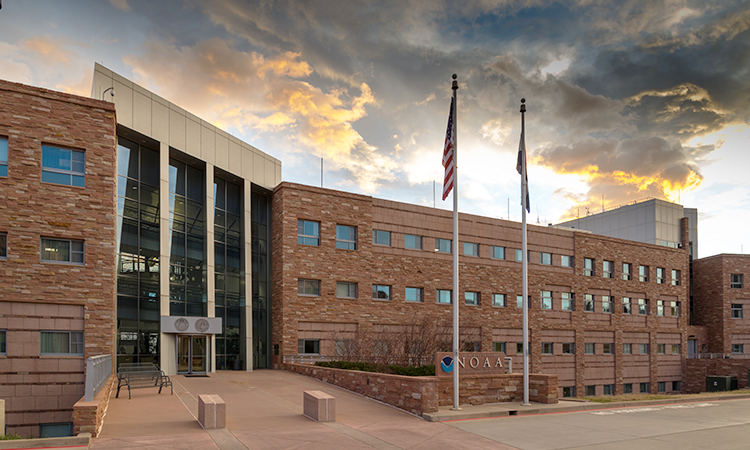Seminar
A model study of tropospheric impacts of the Arctic ozone depletion 2011

Judith Perlwitz, NOAA ESRL PSD & CU CIRES
Wednesday, March 26, 2014, 3:30 pm Mountain Time
DSRC 2A305
Abstract
Record Arctic ozone loss in spring 2011 occurred in concert with record positive values of the tropospheric Northern Annular Mode (NAM) index raising the question about the role of stratospheric driver on this tropospheric climate event. A set of 50-years long simulations by atmospheric general circulation model ECHAM5 is carried out and the responses of the model to observed anomalies in stratospheric ozone (O3) and sea surface temperatures (SST) separately and also the response to combined SST and O3 forcing (ALL) are analyzed. In all three experiments the response is characterized by a strengthening of stratospheric polar vortex in March-April; but only in the ALL experiment is this strengthening followed by a significant, month-lasting shift of the tropospheric circulation towards a positive NAM phase and increased probability of occurrence of extremely positive NAM events. While the response of the tropospheric circulation to the O3 forcing alone is weak compared to the internal variability, the combined effect of the O3 and SST forcings on the circulation is stronger than the sum of the individual O3 and SST responses, both in the stratosphere and troposphere. This result suggests that non-linear interactions between dynamical changes caused by ozone-induced stratospheric cooling and tropospheric forcing associated with the SST anomalies contributed to the record tropospheric climate anomalies observed in spring 2011.
The record 2011 ozone loss event was caused by unusual meteorological conditions in the Artic during the winter 2010/2011, characterized by persistent low temperatures and a strong stratospheric polar vortex. In the second part of this talk I will present a new interpretation of the 2011 stratospheric winter conditions and discuss resulting implications for future Arctic ozone trends.
ALL Seminar attendees agree not to cite, quote, copy, or distribute material presented without the explicit written consent of the seminar presenter. Any opinions expressed in this seminar are those of the speaker alone and do not necessarily reflect the opinions of NOAA or CSL.